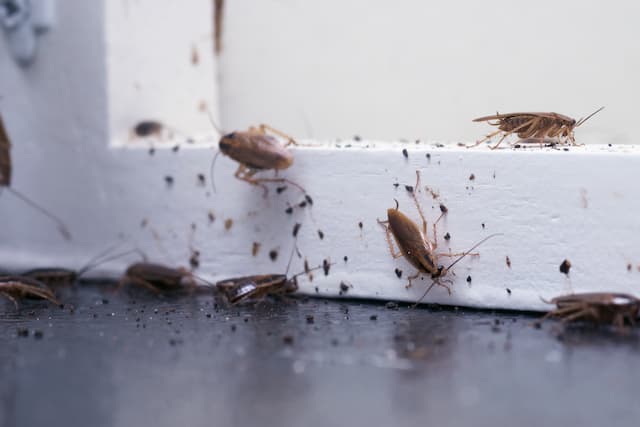German cockroaches, or Blattella germanica, are a common pest in homes that are known for being hardy and able to adapt to new situations. These small, light brown to tan bugs are very annoying and can be bad for your health. For a German cockroach population to be under control, it’s important to know how they act and use the right methods. We’ll talk about some of the best ways to get rid of German cockroaches in your home in this piece.
How to Spot a German Cockroach
You need to make sure there are German cockroaches before you can get rid of them. These traits can help you figure out which ones these pests are:
- German cockroaches are small. Their length is usually between 1/2 and 5/8 inches. Their bodies are small and oval-shaped.
- Colour: They are light brown to tan, and behind their heads there are two large, parallel lines that make them stand out.
- Behaviour: German cockroaches are nocturnal, which means they are most busy at night, and they can run quickly. They hide during the day in cracks, openings, and warm, dark places.
- Reproduction: These bugs can have many babies very quickly. During her lifetime, a female can make several egg cases, each with about 30 to 40 eggs.
How to Get Rid of German Cockroaches:
Cleanliness is Key Keeping your home clean and uninviting is the first and most important thing you can do to get rid of German cockroaches. They want food, drink, and a warm place to live. Get rid of food sources by putting things away in closed containers, cleaning up spills and crumbs right away, and not leaving dirty dishes out overnight.
- Getting rid of entry points: German cockroaches can get into your home through small holes and cracks. Use caulk or weatherstripping to seal holes around pipes, windows, and doors that could let bugs in.
- If you want to get rid of German cockroaches, you should use cockroach traps. The roaches eat these baits and bring the poison back to their houses, where it is shared with other members of the colony, even the queen. This can help get rid of whole groups.
- Insect Growth Regulators (IGRs): IGRs are drugs that make it hard for German cockroaches to reproduce. They stop young roaches from becoming adults and breeding, which can help keep the population in check over time.
- Professional Pest Control: If you’re having a hard time getting rid of pests or the problem is getting worse, you should hire a professional pest control service. German cockroaches can be completely wiped out by hiring an exterminator with the right skills and tools.
- Monitoring and Regular Checks: Keep an eye out for signs of a comeback. Early diagnosis is very important. Using cockroach traps to check on things on a regular basis can help you find a problem before it turns into a swarm.
- Do Not Use Over-the-Counter Sprays: Do not use over-the-counter sprays unless you can see a specific roach that you want to kill. These sprays can spread bugs around, which makes the problem worse.
- Take care of the outside of your home. German cockroaches can get inside from the outside. Keep your outdoor spaces free of trash like leaves and piles of wood, which roaches can use to hide and lay their eggs.
- Stay away from clutter. Roaches can hide in more places when there is a lot of it around. Keep your home clean and free of roach-friendly piles of magazines, newspapers, and other things.
That being said
Infestations of German cockroaches can last for a long time, but they can be managed with the right methods. Remember that the keys to success are good hygiene, close supervision, and professional pest control help when you need it. By using these tips, you can keep your home free of German cockroaches, which are a bother and can be bad for your health.
Cockroach Control Newmarket deals with cockroach infestations with a systematic and exhaustive approach. Our trained technicians not only exterminate the cockroaches that are easily visible but also locate their nesting locations and thoroughly treat them, thus eliminating the threat of a future infestation.
